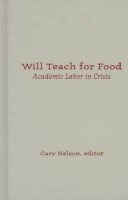Studies in Classical Philology
1 total work
Academic labour has never been more vulnerable to exploitation, or more galvanized to action. Shrinking budgets, threats to tenure, job shortages for new PhDs, and an increasing reliance on graduate students and adjunct professors for teaching are the harsh reality on campuses all across the country. In this study, a group of scholars and activists address the state of the unions, and examine the issues behind the developing crisis in the academy. When graduate students at Yale University held a "grade strike" during the 1995-96 academic year, they were protesting against policies like downsizing, subcontracting, outsourcing - all of the strategies currently wreaking havoc with the larger US workforce. The debates at Yale mirror those on many campuses: whether graduate student teaching assistants are students or employees of the university; whether faculty are professional employees (and therefore part of university administration) or staff; what constitutes a reasonable teaching load and fair compensation.
Here, participants in the Yale student strike describe the chronology of events and examine their larger implications, looking outward toward what workers on other campuses can learn from this student strike. Other articles assess the effect "corporate" universities have on the communities that surround them, place the strike in the context of US labour history, and analyze the effect technology has on academic freedom.
Here, participants in the Yale student strike describe the chronology of events and examine their larger implications, looking outward toward what workers on other campuses can learn from this student strike. Other articles assess the effect "corporate" universities have on the communities that surround them, place the strike in the context of US labour history, and analyze the effect technology has on academic freedom.
